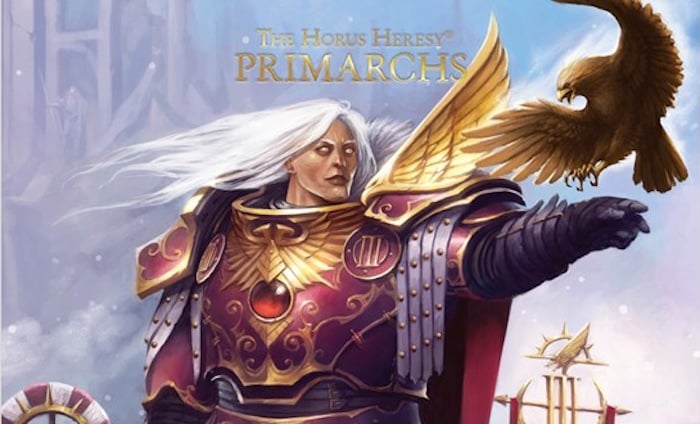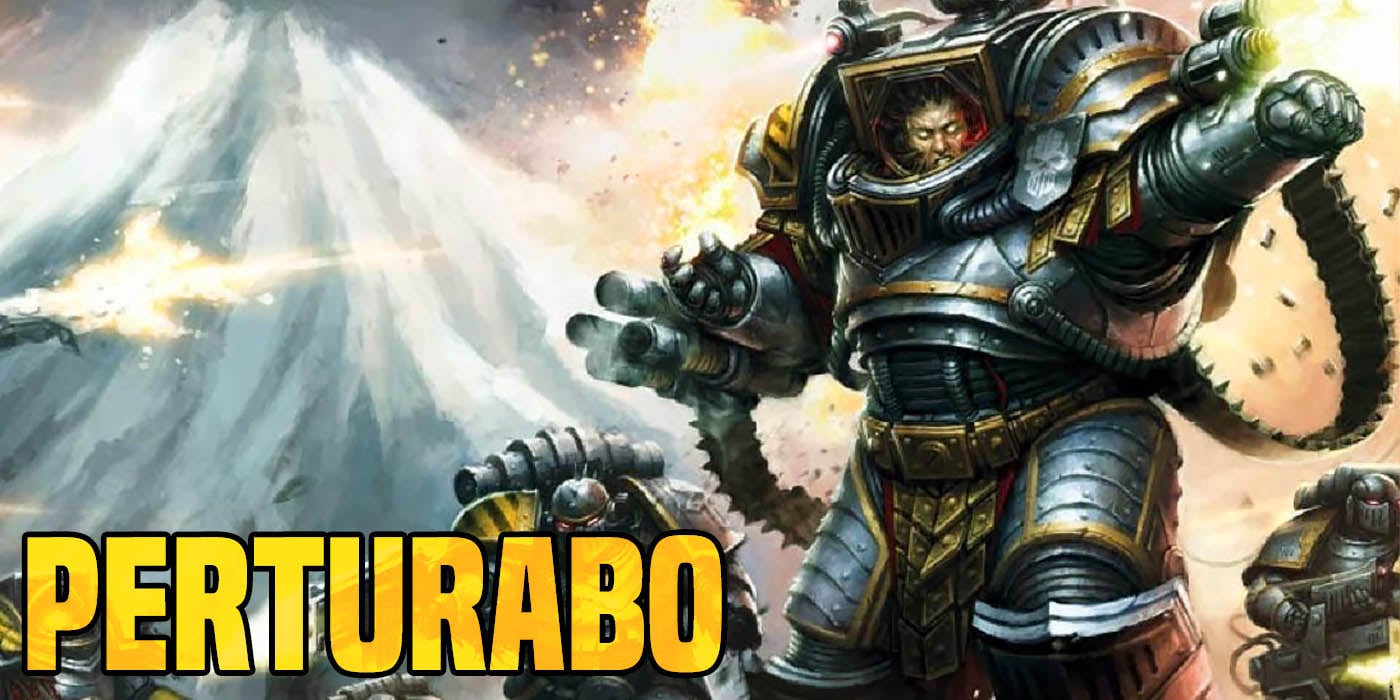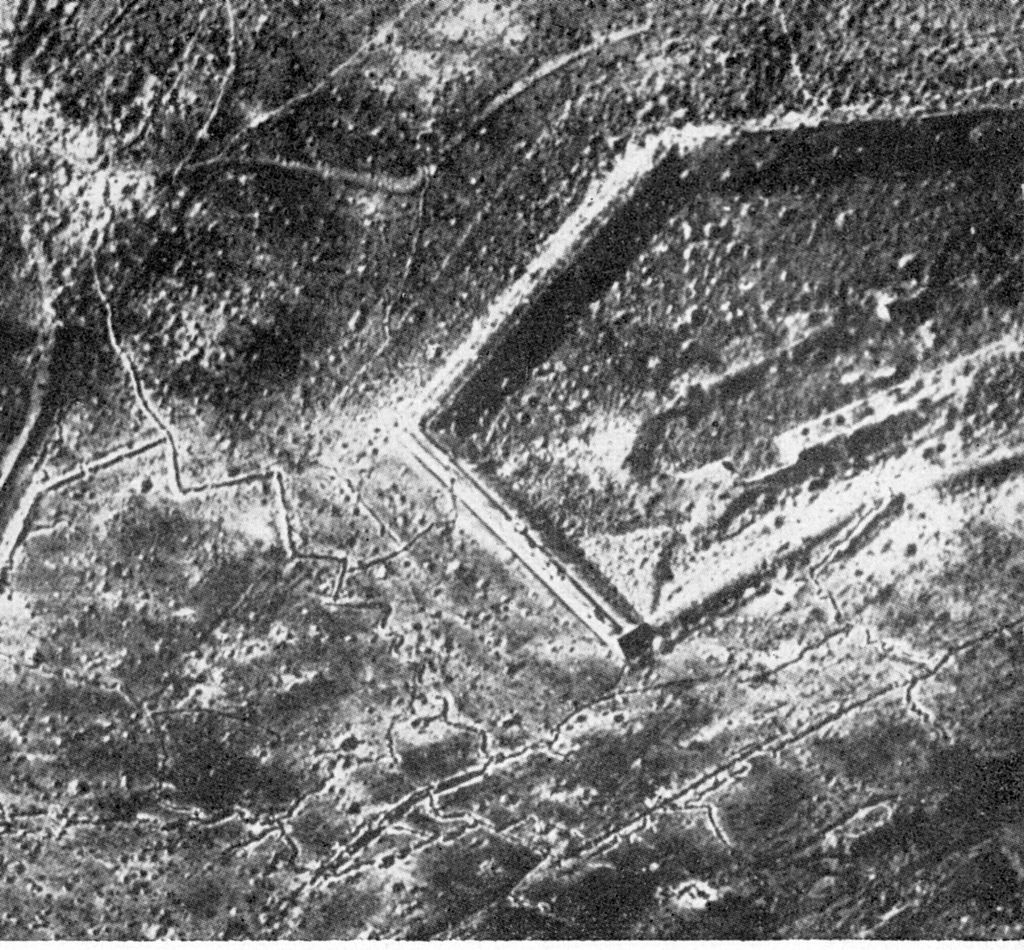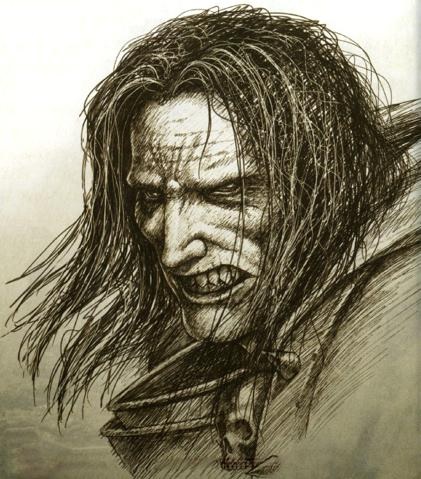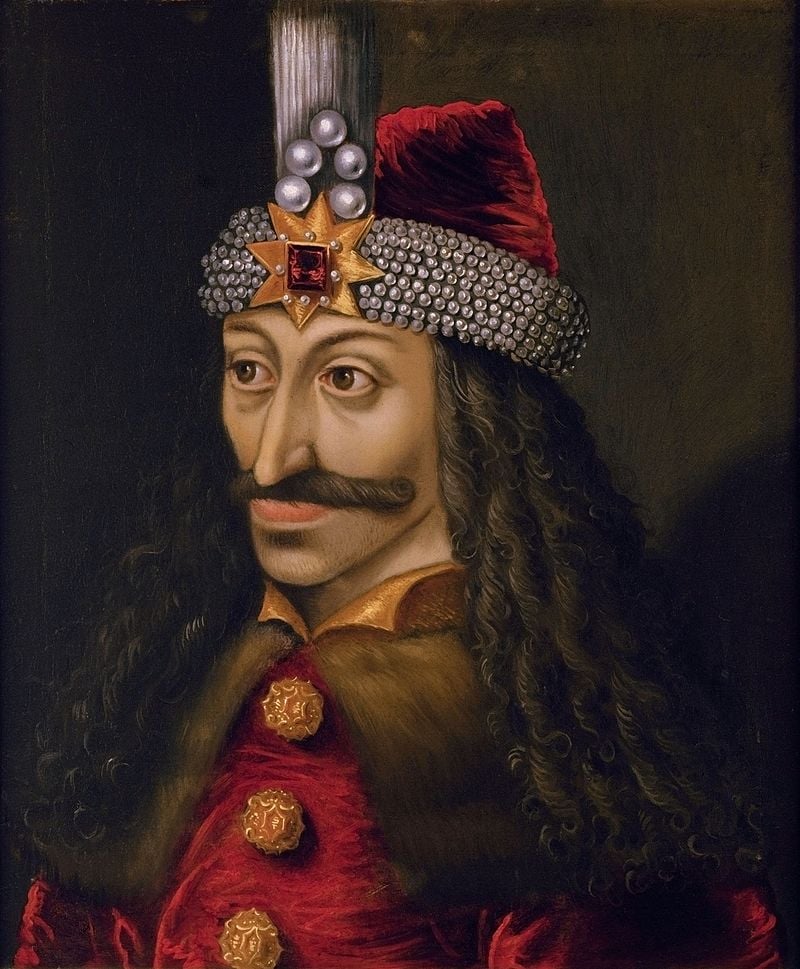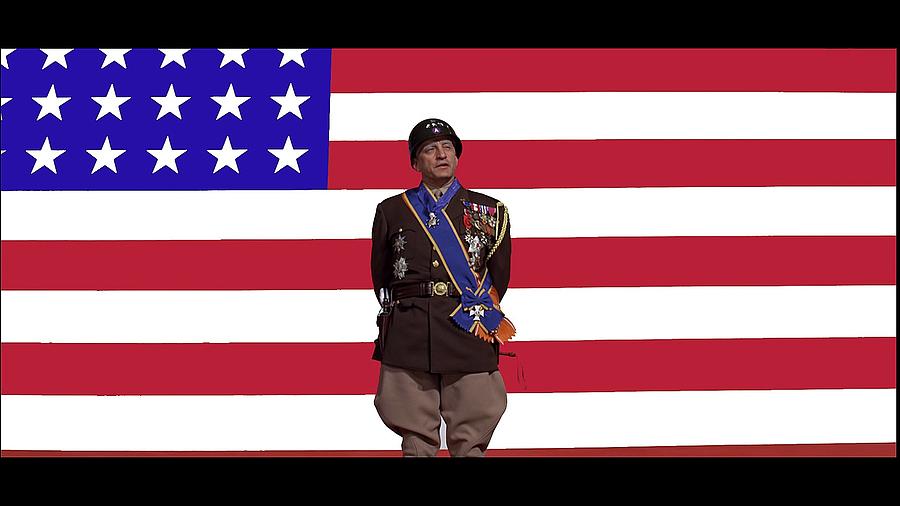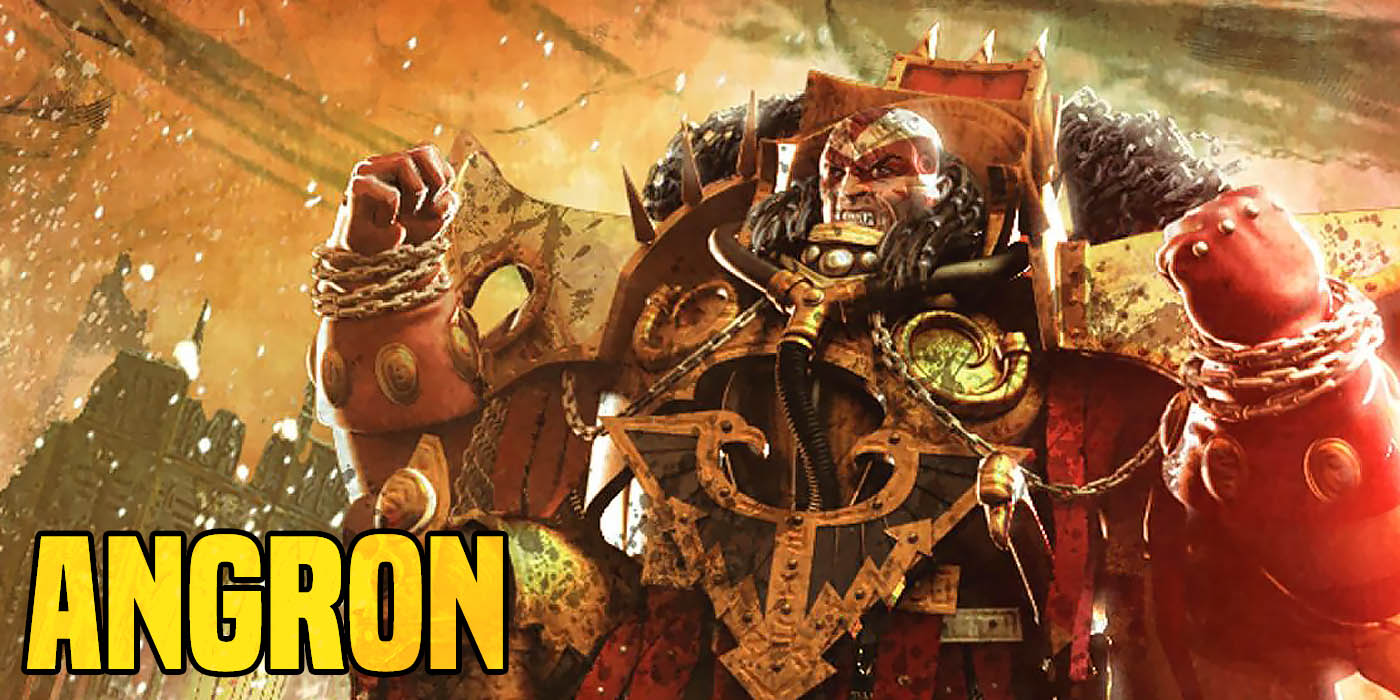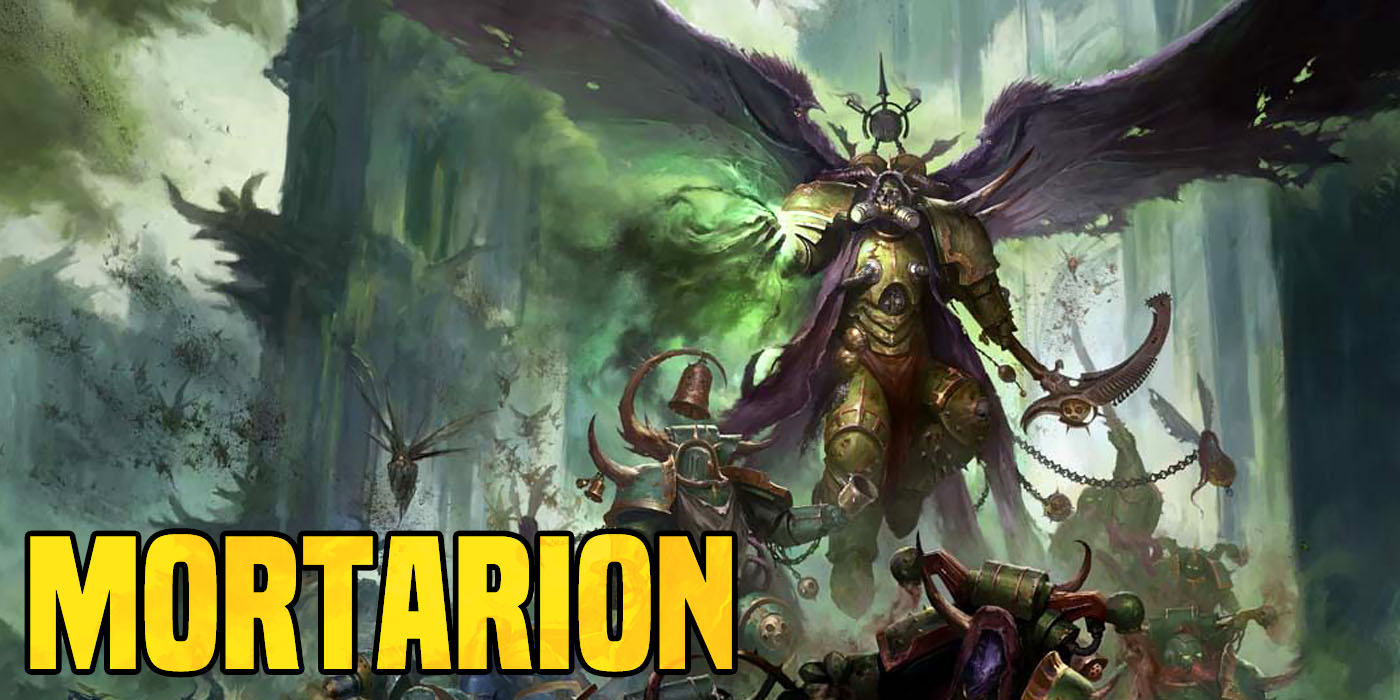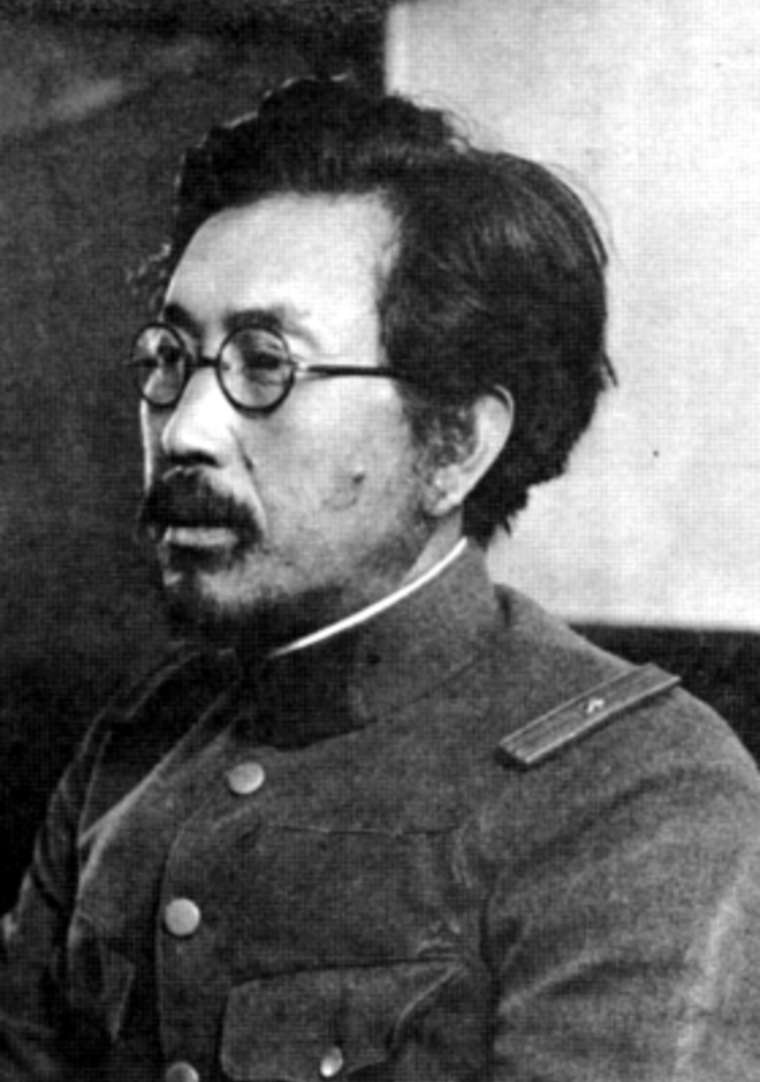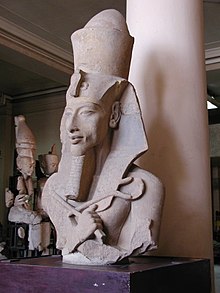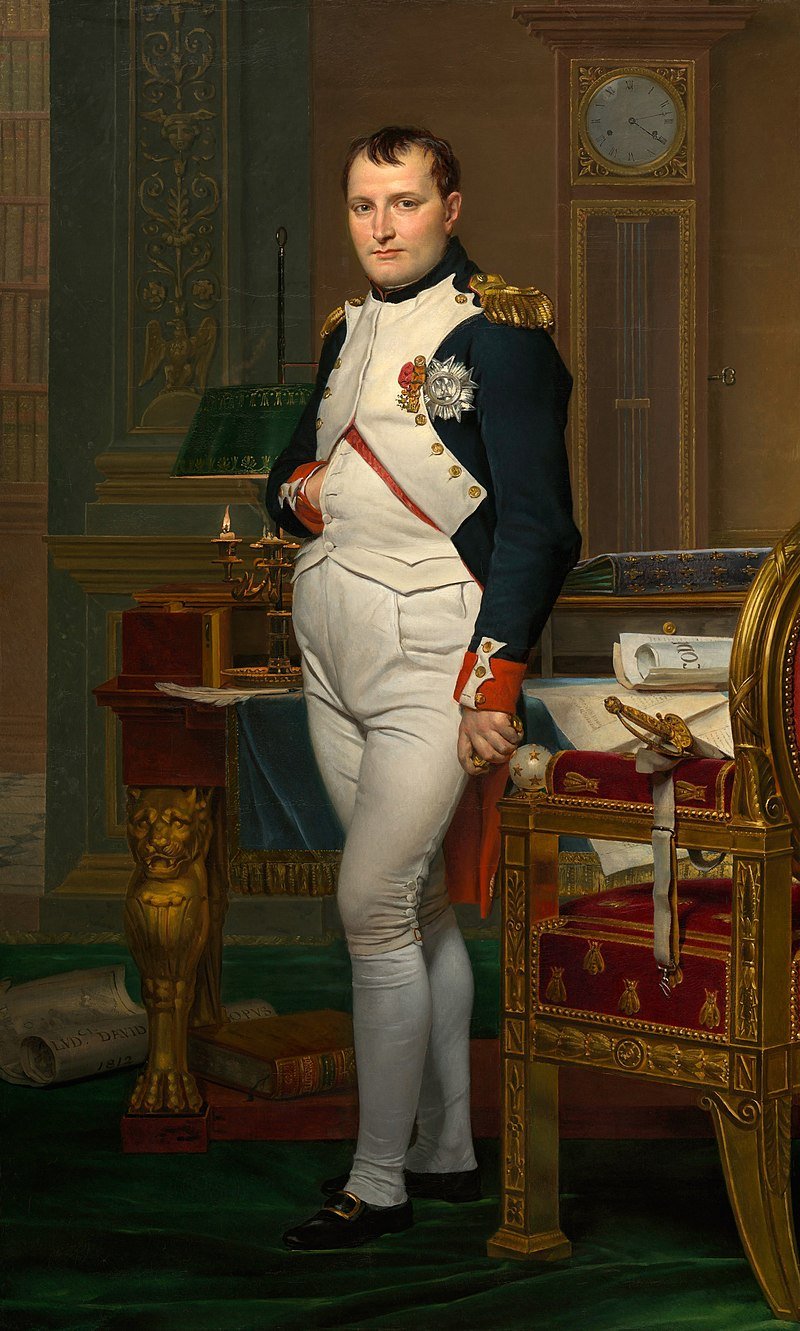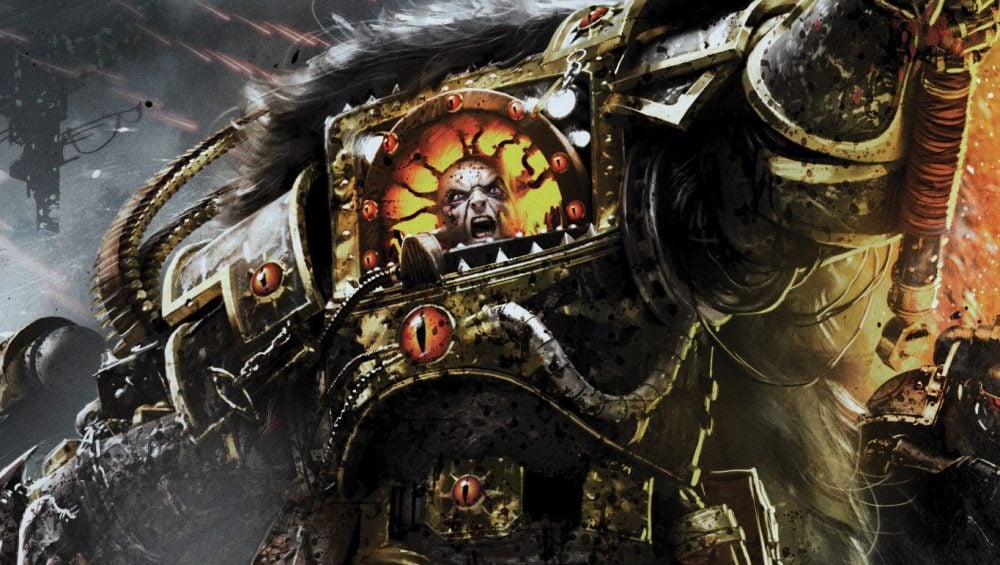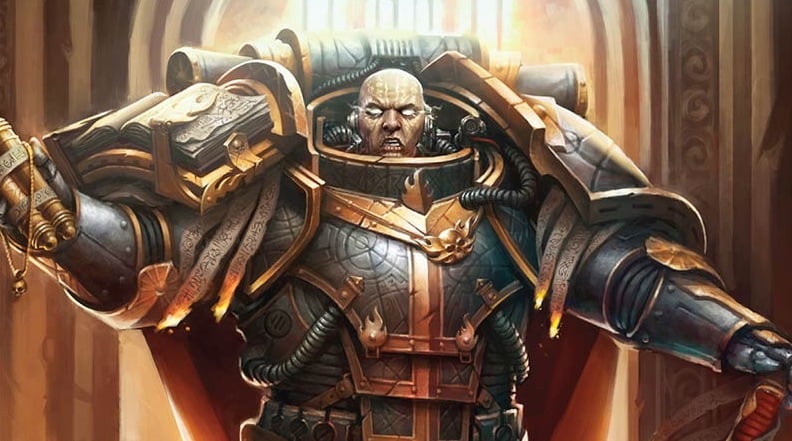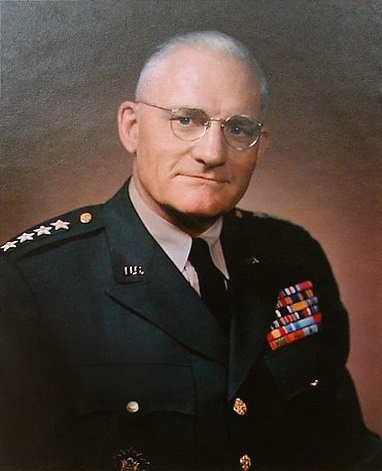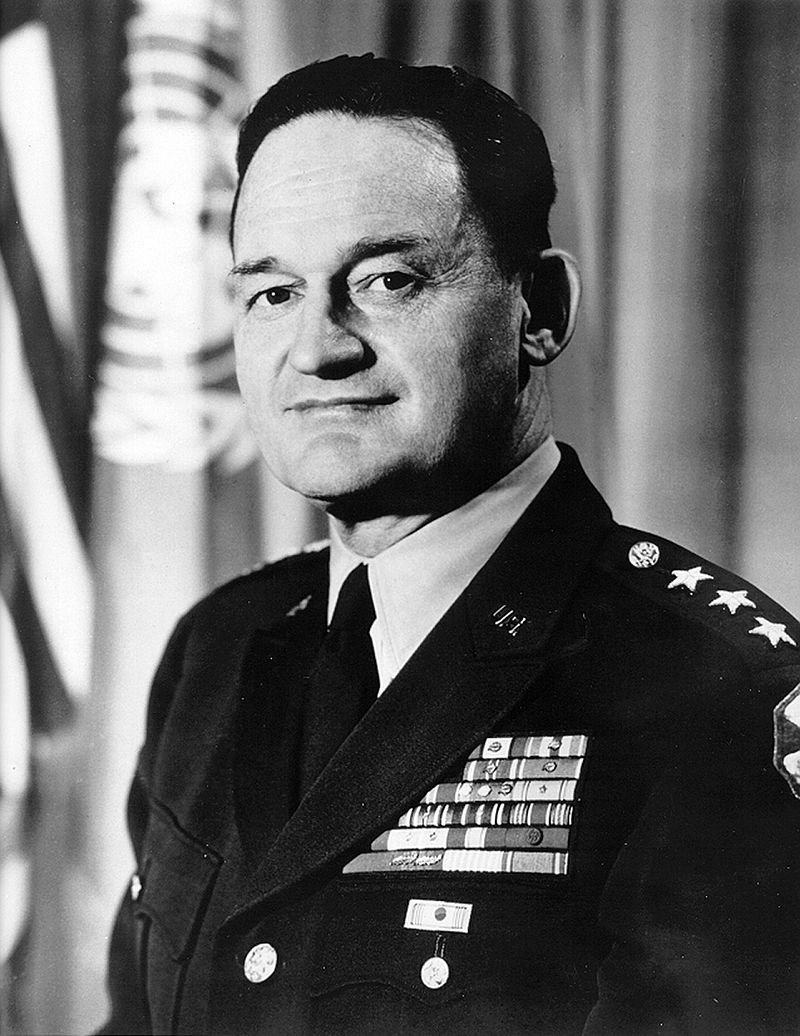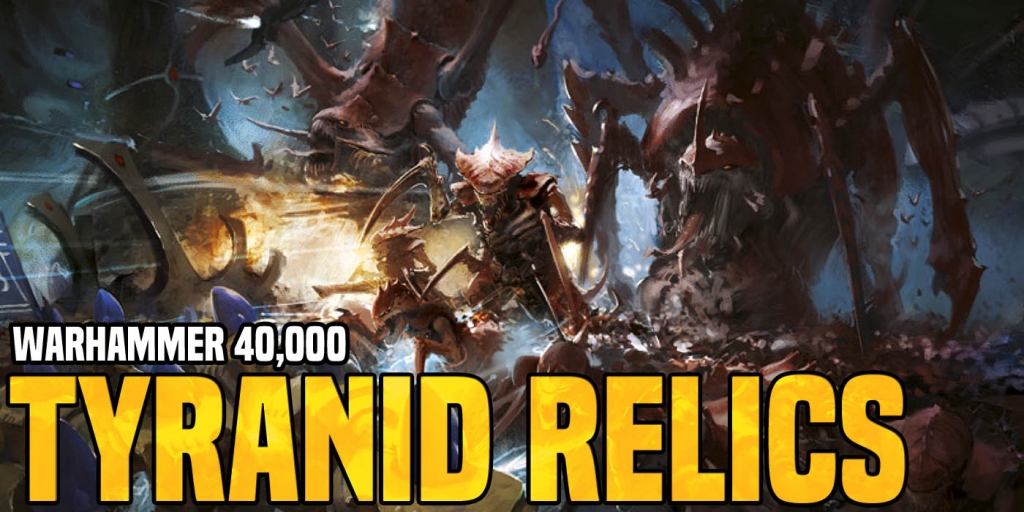40K: Traitor Primarchs’ Real Life Military Counterparts – PRIME
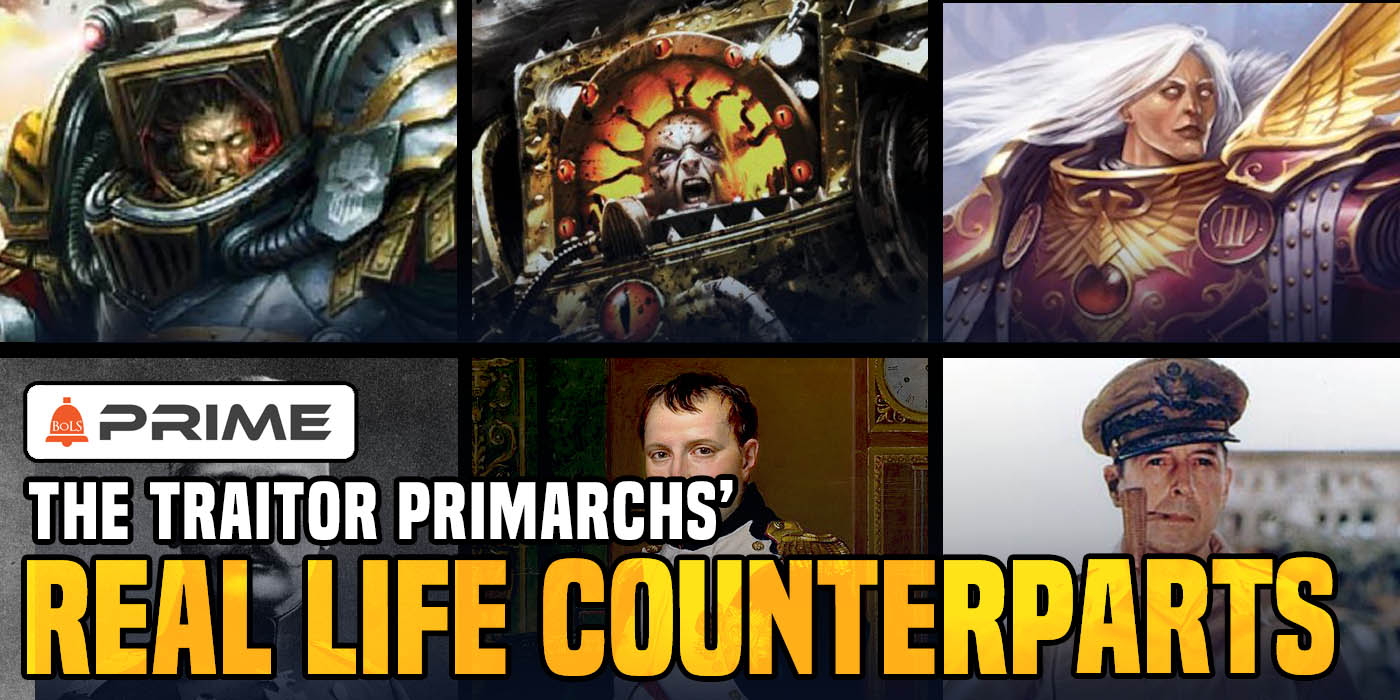
Today we look at the nine fallen Primarchs and determine which real-life general, or military commander, best represents them.
The universe Warhammer 40,000 is a massive, sprawling setting. A hundred thousand story threads weave together to form a sprawling tapestry of tragedy and heroism. Tales of betrayal and loyalty, brotherhood and war, are played out on a galactic stage. At the heart of 40K is the Horus Heresy and the Primarchs. The Demi-God sons of the Master of Mankind, whose hopes and ambitions tore humanity apart.
Each of these warriors is larger than life; supernaturally gifted individuals created to carry out their father’s will. Above all else, they are warriors, bred to carry their creator’s banner across the stars. And do so they did, writing their names in history in the blood of a million subjugated systems.
In writing the Primarchs, it is clear that GW drew on many sources and inspirations, both real and mythical. No Primarch is a direct copy of an actual figure; they are too complex and mythical to be so. However, it is possible to look at them and draw parallels both to story and history. Today I want to look at the traitor Primarchs and examine what real-life general, or military commander, best represents them. The generals I’ve picked are picked because they match some integral part of the Primarch’s history or personality. You can see the Loyalist Primarch list here. Let’s dig into the Traitors.
Fulgrim – Douglas MacArthur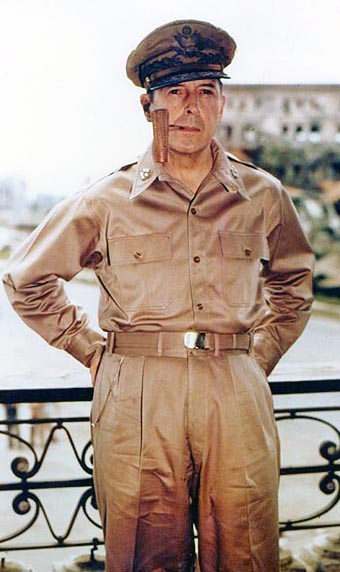
At first, this might seem a strange choice, what does Fulgrim, the Phoenician, have in common with the famous American WWII General? Well, a few things. Firstly, there is the flamboyance. Fulgrim is by far the most flamboyant, and downright fabulous, of the Primarchs, with a love of over the top showiness. He’s perfect and well-loved, but… it’s in large part artifice, geared towards making people love him. MacArthur likewise is well known for flamboyance. From his over the top dressing gowns to his comically large corncob pipe to his jaunty hat, he knew how to put on a show. Like Fulgrim, MacArthur was known for flamboyance, and this made him loved by many. For both of them, the strategy worked and made them stand out.
You can also track a bit of a similar pattern with the two. Both started as master generals of their side, paragons, and famous. Over their careers, you could argue that both became increasingly… arrogant and unhinged. Harder to control, more extreme, and more flamboyant. MacArthur, for instance, slowly started advocating more and more drastic actions.
Both had pride as their great weakness, and both had trouble with authority –
I fired him because he wouldn’t respect the authority of the President. I didn’t fire him because he was a dumb son of a bitch, although he was, but that’s not against the law for generals.
– President Harry S. Truman
This eventually leads to them falling out with their government- though luckily, MacArthur’s falling out was a lot more peaceful than Fulgrim’s. On the last interesting note, MacArthur also had a relationship with an Emperor. During the occupation of Japan, MacArthur worked with and supported Emperor Hirohito of Japan.
Perturabo–Erich von Falkenhayn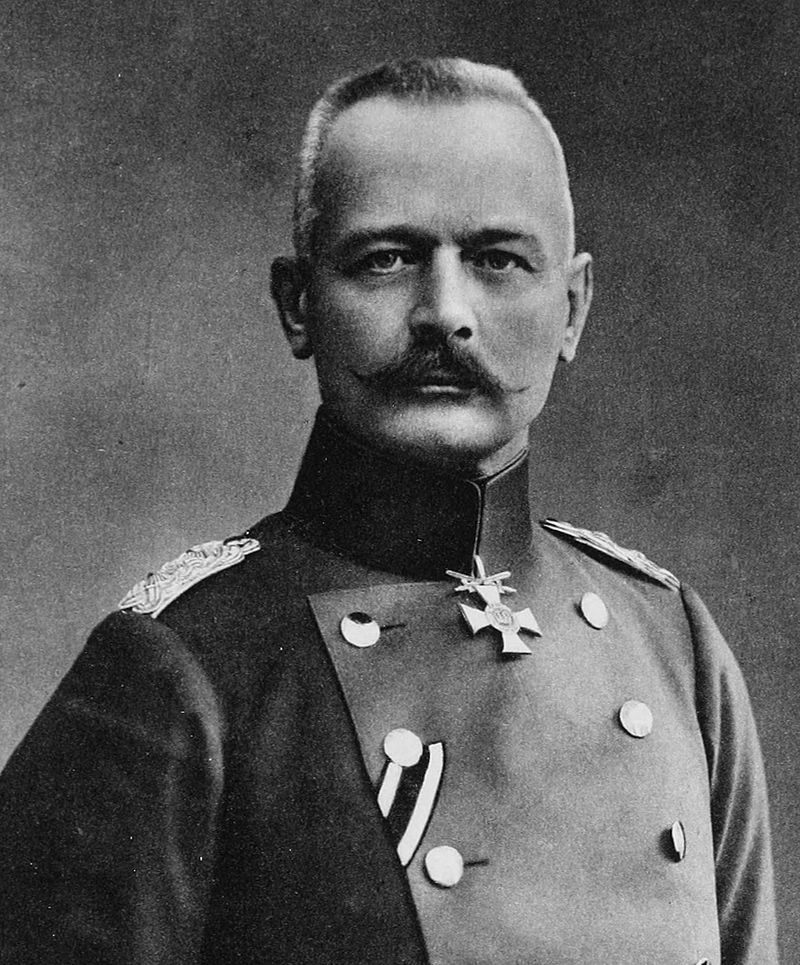
Perturabo, the Iron Lord, is known as a master of siege warfare. In this, he was in constant competition with his brother Dorn. The Iron Lord is a strict and hard master, enforcing harsh discipline among his troops. Equally skilled at constructing and defending fortifications as attacking them. He is also a master of bombardment, as he proved during the Siege of Terra, using all his wiles to overcome portions of the palace aegis. This makes him a good match for another master of siege and siege-like warfare: Erich Von Falkenhayn.
Falkenhayn was a German general during the First World War and served as Chief of the General staff during the first two years of the war, as such Falkenhayn was in command of German armies during the development of the Western Front and the “invention” of modern trench warfare. He proved a master at it, and though unable to win a decisive victory, many Allies (including Winston Churchill) considered him Germany’s most capable general. An old school Prussian, Falkenhayn was a strict disciplinarian (though far more a gentleman than Perturabo). Overall the two have similar strengths.
Maybe the most considerable similarity is in their most famous battles. Both the Iron Lord and Falkenhayn ultimately decided upon the same tactic to bring down a foe – to force a battle at a strategically unimportant, but someone symbolic, point, and then grind the enemy down through an attrition battle, in which the enemy would be forced for attack them. For Perturabo, this was the Iron Cage, where he built a meaningless fortress, and using himself as a symbol got Dorn to attack him, shattering his Legion in the process.
For Falkenhyan, it was Verdun, where he planed a quick attack to capture the town and forts, which would then force the French to counter-attack in a war of attrition. Though Falkenhyan was unable to fully carry out the plan (Verdun never fell), he did get a battle of attrition. Ultimately both Falkenhyan’s and Perterubo’s plans failed, though the enemy suffered massively as a result. The similarity in these two plans and their approach to war (along with the fact that both tended to be overlooked in favor of their more flashy allies) is why they make a good pair.
Konrad Curze – Vlad III Dracula
This feels like another one I don’t need to write out – terror tactics, horrible massacres, blood so much blood, a tortured soul, darkness, and bats. All of these are hallmarks of both Cruze and Vlad III. Now it’s true that Cruze is more accurately based on the myths that have grown up around Dracula and less on the man, but it’s likely some of the real man shines through. Vlad III, the real man not the vampire, is still credited often with strange and maybe supernatural powers, and Cruze, of course, has his own strange powers. Vlad III also committed atrocities, just like Cruze. Vlad even won a famous battle with a night attack, a true night lord indeed.
Ultimately Vlad and his legends helped inspire two Primarchs. Sanguinus and Cruze, two sides of a coin, both those sons of the Emperor gifted with foresight, Sanguinus, and his sons are the sexy, glamorous vampires, Princes of the Night style, that could be good guys. Cruze and his sons are the other sides of the coin, the feral blood drinkers, they live in the dark, love bats and lighting and are in many ways closer to the real truth of Vlad III than the bright Blood Angels. Ultimately Vlad and Cruze are a match made in hell.
Angron– George S. Patton
Angron, the Primarch of the XII Legion (whose colors just happen to be red, white, and blue), is well known for being the most aggressive of the Primarchs, favoring attack over all else. George Patton is likewise well known as being one of the more aggressive American generals. During the Second World War, Patton acted like an aggressive (overly aggressive some would say) general, always favoring the offensive.
Both Primarch and general favor shocking assaults to break the enemy up and keep them running, and both were criticized for acting rashly, and always looking for a fight. Patton was made Military Governor of Bavaria after the war, but quickly removed when it was feared he would pick a fight with the Soviets. Patton, like Angron, also chafed when held back from a fight, he railed against Allied strategy that held him back from an all-out attack on Germany, and after V-E Day, asked to be moved to the Pacific theater so he could keep fighting, a very Angron move.
Notably, both are also known for physical violence against their own troops. Angron started his tenure as Primarch by killing the Captains sent to speak with him, and later, of course, as a Daemon Primarch would often kill his own men. While less brutal, Patton also gained infamy during the Second World War for slapping two privates under his command. Though there was a push to remove him from command for this, it was felt that his aggressive nature was needed to win the war, no doubt the Emperor felt likewise about Angron, and excused his rages for similar reasons.
Mortarion–Shirō Ishii
Magnus The Red –Amenhotep IV/Akhenaten
I think it’s pretty clear why Magnus The Red would be matched with an Egyptian pharaoh, in looks and aesthetics he and his warriors are based on Egyptian designs. I’ve gone with Amenhotep IV- later Akhenaten for a singular reason here. Like all Pharaohs, he was a ruler, a priest-god a general. All roles it could be said Magnus filled as well. Akhenaten wasn’t particularly known for his generalship, though it would be fair to say the among the Primarchs Magnus did not stand out as a commander either. The core reason I’ve gone for this match is because Akhenaten oversaw a change of religion in Egypt of the 18th Dynasty, focusing worship on the Sun god Aten, and abandoning old beliefs. Magnus too forsook his old “gods,” and led his people to follow new religion, and that’s why these two are a match.
Horus Lupercal–Napoléon Bonaparte
This is another one where I don’t think we have to dig down too deep to see the similarities. Both Napoleon and the Lupercal lived in a time of warfare and change. Both were surrounded by a host of brilliant and capable generals; and among that august company were considered the greatest of their time, if not all time. Both men revolutionized warfare, were without peer and would shake humanity with their actions. Though both started as soldiers for their nation, they would ultimately attempt to seize control, and launch a campaign of conquest. Arguably both sought power for noble reasons at first, yet over time this power corrupted them, driving them to seek greater control. Noble goal or not, their drive to dominate resulted in countless deaths.
On the battlefield, they favored similar tactics as well, opting more often than not for an offensive posture. Horus preferred the spear point strike, a concentrated quick attack on important points to break the enemy and throw them off. Once off balance, he would use the Justerian Terminators to land a killing blow. Napoleon likewise favored concentrated shock tactics, using massed infantry columns to deliver devastating blows and then finishing the enemy with an attack by the Imperial Guard.
Both were men of ambition and massive charisma, Horus was able to convince millions to rebel with him based in the main on his personal charisma. Likewise, on his return from exile on Elba, Napoleon repeated convinced troops sent by the King to arrest him to turn their coats and join him, winning back control of France with barely a shot fired. All of this on almost his charisma alone. Both men were peerless, both men reached for the stars, and ultimately though they came close, both failed.
Lorgar Aurelian– Oliver Cromwell
No one seems to really like Lorgar, the controversial Primarch of the Word Bearers. Likewise, few seem to personally have liked Oliver Cromwell, English General, and Lord Protector of the Commonwealth. Both were spare, ascetic and puritanical men, with a mixed legacy. Cromwell was a deeply religious man, devoted to what was still a new faith, and determined to spread it. He ultimately helped engineer a rebellion against his monarch and helped fight it, often resorting to brutal tactics to win. Likewise, Lorgar was the most “religious” of the Primarchs, and his faith led him into rebellion and civil war as well. Depending on who you ask, both men either worked to free man from the shackles of tyranny or were religious fanatics at whose feet can be laid a host of atrocities.
Alpharius Omegon – Williston B. Palmer and Charles D. Palmer
Like the Primarch Alpharius, the Palmers are not one general, but two and brothers at that. Williston and Charles Palmer where the first pair of brothers to reach the rank of four-star general in the US army, making them a good fit for the twin Primarchs. The Palmer brothers both served in the Second World War, and Charles Palmer fought in Korea as well. Though both were no strangers to open war, they also both served as US generals in Europe during the Cold War. Like Alpharius Omegon, they would have been familiar with some of the more subtle aspects of generalship – intelligence gathering, counter-espionage, and diplomatic necessities. Much of their time in command was spent fighting a cold, not open war.
In Europe, Williston Plamer was instrumental in creating the Seventh Army Symphony Orchestra and used these solider-musicians to help fight a cultural war in Europe. This battle for the hearts and minds, a subtle infiltration of the Soviet Union, seems pretty on point for the Alpha Legion. Overall I think they are a pretty good fit.

